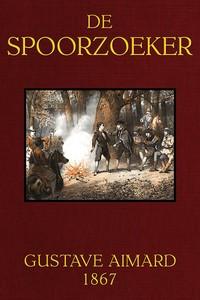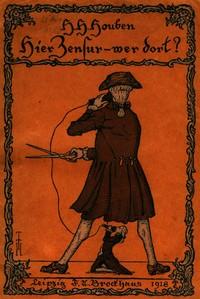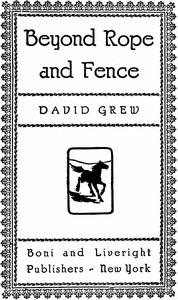Read this ebook for free! No credit card needed, absolutely nothing to pay.
Words: 92739 in 18 pages
This is an ebook sharing website. You can read the uploaded ebooks for free here. No credit cards needed, nothing to pay. If you want to own a digital copy of the ebook, or want to read offline with your favorite ebook-reader, then you can choose to buy and download the ebook.
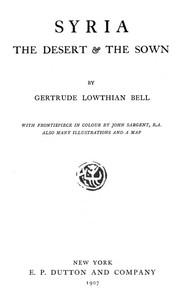

: Syria the Desert & the Sown by Bell Gertrude Lowthian Sargent John Singer Illustrator - Palestine Description and travel; Syria Description and travel; Syria Social life and customs; Palestine Social life and customs; Lebanon Description and travel; Lebano
Bedouin of the Syrian Desert Frontispiece The Mosque of 'Umar, Jerusalem The Church of the Holy Sepulchre, Jerusalem A Street in Jerusalem St. Stephen's Gate, Jerusalem A Mahommedan Procession passing the Garden of Olives Russian Pilgrims Pilgrims receiving Baptism in Jordan Monastery of Kuruntul above Jericho Crossing the Gh?r The Bridge over Jordan The Monastery of Mar Saba, Wilderness of Judae The Wall of Lamentation, Jerusalem Jews of Bokhara Abyssinian Priests An Arab of the 'Adw?n Guarding Crops An Encampment near the Dead Sea The Theatre, 'Amm?n A Gateway, 'Amm?n The Temple, Khureibet es S?? Mausoleum, Khureibet es S?? Arabs of the Bel?a A Ruined Church, M?deba The ?al'ah at Z?za A Christian Encampment Flocks of the ?ukh?r A Roman Milestone Mshitta Mshitta, the Fa?ade Mshitta, the Inner Halls Arabs of the Bel?a Fell?? ul 'Isa ad Da'ja A Capital at Muwa??ar A Capital at Muwa??ar A Capital at Muwa??ar Milking Sheep G?abl?n ibn ?am?d ad Da'ja On the ??jj Road Arabs Riding Mard?f A Travelling Encampment of the 'Ag??l A Desert Well A Desert Water-course Camels of the ?aseneh Umm ej Jem?l Watering Camels Striking Camp Mu?ammad el A?rash Desert Flora and Fauna The Castle, ?alkhad Nas?b el A?rash A Group of Druzes From ?alkhad Castle, looking South-East ?reyeh A Druze Ploughboy Bo?r? Eski Sh?m The Village Gateway, ?abr?n A Druze Ma?'ad, ?abr?n Lintel, el Khurbeh The Walls of ?anaw?t ?anaw?t, The Basilica ?anaw?t, Doorway of the Basilica ?anaw?t A Temple The Temple, Mashennef ?al'at el Bei?a ?al'at el Bei?a ?al'at el Bei?a, Door of Keep Mouldings from ?al'at el Bei?a and from Palmyra A Gateway, Shakka The Sheikh's House, ?ay?t In the Palmyrene Desert 135 The Great Mosque and the Roofs of the Bazaar from the Fort A Corn Market The ?ubbet el Khazneh The Tekyah of Nakshibendi Gate of the Tekyah Mush?in Kalam Sweetmeat Sellers Court of the Great Mosque Threshing-floor of Karyatein The Tekyali of Nakshibendi Outside Damascus Gates A Water seller Su? W?di Barada Ba'albek The Great Court, Ba'albek Columns of the Temple of the Sun, Ba'albek Temple of Jupiter, Ba'albek Capitals in the Temple of Jupiter, Ba'albek Fountain in the Great Court, Ba'albek Fragment of Entablature, Ba'albek Basilica of Constantine, Ba'albek A Stone in the Quarry, Ba'albek R?s ul 'Ain, Ba'albek Cedars of Lebanon The ??mu'a Hurmul An Eastern Holiday A Street in ?om? Coffee by the Road-side ?al'at el ?u?n ?al'at el ?u?n, Interior of the Castle Windows of the Banquet Hall ?al'at el ?u?n, Walls of the Inner Enceinte Fella??n Arabs The Temple at ?u?n es Suleim?n North Gate, ?u?n es Suleim?n City Gate, Masy?d Capital at Masy?d Capital at Masy?d A Na'oura, ?am?h The ?ubbeh in the Mosque at ?am?h The Tekyah Kill?niyyeh, ?am?h Capital in the Mosque, ?am?h A Capital, ?am?h ?al'at es Seijar ?al'at es Seijar, The Cutting through the Ridge A Capital, ?am?h A House at el B?rah Moulding at el B?rah and Lintel at Khirbet H?ss Tomb, Serjilla Sheikh Y?nis House at Serjilla Tomb of Bizzos Church and Tomb, Ruwei?? ?a?r el ?an?t Tomb D?na A Beehive Village The Castle, Aleppo A Water-carrier ?al'at Sim'?n ?al'at Sim'?n ?al'at West Door ?al'at Circular Court ?al'at Circular Court ?al'at The Apse ?al'at West Door A Funeral Monument, ???ur? Khir?b esh Shems Khir?b esh Carving in a Tomb Capital, Upper Church at Kal?teh Bar?d, Canopy Tomb Bar?d, Tower to the West of the Town M?sa and his Family B?suf?n, a Kurdish Girl Tomb at D?n? The B?b el Hawa The Temple Gate, B??ir?a ?alb L?zeh The Apse, ?alb L?zeh ??rim Sal??n Travellers Antioch Antioch On the Bank of the Orontes, Antioch The Corn Market, Antioch Roman Lamp in Rifa't Agha's Collection Head of a Sphinx, Antioch Daphne The Gar?z The Statue in the Mulberry-Garden Lower Course of the Gar?z Sarcophagus in the Seraya, Antioch
To those bred under an elaborate social order few such moments of exhilaration can come as that which stands at the threshold of wild travel. The gates of the enclosed garden are thrown open, the chain at the entrance of the sanctuary is lowered, with a wary glance to right and left you step forth, and, behold! the immeasurable world. The world of adventure and of enterprise, dark with hurrying storms, glittering in raw sunlight, an unanswered question and an unanswerable doubt hidden in the fold of every hill. Into it you must go alone, separated from the troops of friends that walk the rose alleys, stripped of the purple and fine linen that impede the fighting arm, roofless, defenceless, without possessions. The voice of the wind shall be heard instead of the persuasive voices of counsellors, the touch of the rain and the prick of the frost shall be spurs sharper than praise or blame, and necessity shall speak with an authority unknown to that borrowed wisdom which men obey or discard at will. So you leave the sheltered close, and, like the man in the fairy story, you feel the bands break that were riveted about your heart as you enter the path that stretches across the rounded shoulder of the earth.
It was a stormy morning, the 5th of February. The west wind swept up from the Mediterranean, hurried across the plain where the Canaanites waged war with the stubborn hill dwellers of Judaea, and leapt the barrier of mountains to which the kings of Assyria and of Egypt had laid vain siege. It shouted the news of rain to Jerusalem and raced onwards down the barren eastern slopes, cleared the deep bed of Jordan with a bound, and vanished across the hills of Moab into the desert. And all the hounds of the storm followed behind, a yelping pack, coursing eastward and rejoicing as they went.
No one with life in his body could stay in on such a day, but for me there was little question of choice. In the grey winter dawn the mules had gone forward carrying all my worldly goods--two tents, a canteen, and a month's provision of such slender luxuries as the austerest traveller can ill spare, two small mule trunks, filled mainly with photographic materials, a few books and a goodly sheaf of maps. The mules and the three muleteers I had brought with me from Beyrout, and liked well enough to take on into the further journey. The men were all from the Lebanon. A father and son, Christians both, came from a village above Beyrout: the father an old and toothless individual who mumbled, as he rode astride the mule trunks, blessings and pious ejaculations mingled with protestations of devotion to his most clement employer, but saw no need to make other contribution to the welfare of the party--Ibrah?m was the name of this ancient; the son, ?ab?b, a young man of twenty-two or twenty-three, dark, upright and broad-shouldered, with a profile that a Greek might have envied and a bold glance under black brows. The third was a Druze, a big shambling man, incurably lazy, a rogue in his modest way, though he could always disarm my just indignation in the matter of stolen sugar or missing piastres with an appealing, lustrous eye that looked forth unblinking like the eye of a dog. He was greedy and rather stupid, defects that must be difficult to avoid on a diet of dry bread, rice and rancid butter; but when I took him into the midst of his blood enemies he slouched about his work and tramped after his mule and his donkey with the same air of passive detachment that he showed in the streets of Beyrout. His name was Mu?ammad. The last member of the caravan was the cook. Mikh?il, a native of Jerusalem and a Christian whose religion did not sit heavy on his soul. He had travelled with Mr. Mark Sykes, and received from him the following character: "He doesn't know much about cooking, unless he has learnt since he was with me, but he never seems to care twopence whether he lives or whether he is killed." When I repeated these words to Mikh?il he relapsed into fits of suppressed laughter, and I engaged him on the spot. It was an insufficient reason, and as good as many another. He served me well according to his lights; but he was a touchy, fiery little man, always ready to meet a possible offence half way, with an imagination to the limits of which I never attained during three months' acquaintance, and unfortunately he had learned other things besides cooking during the years that had elapsed since he and Mr. Sykes had been shipwrecked together on Lake Van. It was typical of him that he never troubled to tell me the story of that adventure, though once when I alluded to it he nodded his head and remarked: "We were as near death as a beggar to poverty, but your Excellency knows a man can die but once," whereas he bombarded my ears with tales of tourists who had declared they could not and would not travel in Syria unsustained by his culinary arts. The 'arak bottle was his fatal drawback; and after trying all prophylactic methods, from blandishment to the hunting-crop, I parted with him abruptly on the Cilician coast, not without regrets other than a natural longing for his tough rag?uts and cold pancakes.
I had a great desire to ride alone down the desolate road to Jericho, as I had done before when my face was turned towards the desert, but Mikh?il was of opinion that it would be inconsistent with my dignity, and I knew that even his chattering companionship could not rob that road of solitude. At nine we were in the saddle, riding soberly round the walls of Jerusalem, down into the valley of Gethsemane, past the garden of the Agony and up on to the Mount of Olives. Here I paused to recapture the impression, which no familiarity can blunt, of the walled city on the hill, grey in a grey and stony landscape under the heavy sky, but illumined by the hope and the unquenchable longing of generations of pilgrims. Human aspiration, the blind reaching out of the fettered spirit towards a goal where all desire shall be satisfied and the soul find peace, these things surround the city like a halo, half glorious, half pitiful, shining with tears and blurred by many a disillusion. The west wind turned my horse and set him galloping over the brow of the hill and down the road that winds through the Wilderness of Judaea.
At the foot of the first descent there is a spring, 'Ain esh Shems, the Arabs call it, the Fountain of the Sun, but the Christian pilgrims have named it the Apostles' Well. In the winter you will seldom pass there without seeing some Russian peasants resting on their laborious way up from Jordan. Ten thousand of them pour yearly into the Holy Land, old men and women, for the most part, who have pinched and saved all their life long to lay together the ?30 or so which will carry them to Jerusalem. From the furthest ends of the Russian empire they come on foot to the Black Sea, where they take ship as deck passengers on board a dirty little Russian boat. I have travelled with 300 of them from Smyrna to Jaffa, myself the only passenger lodged in a cabin. It was mid-winter, stormy and cold for those who sleep on deck, even if they be clothed in sheepskin coats and wadded top-boots. My shipmates had brought their own provisions with them for economy's sake--a hunch of bread, a few olives, a raw onion, of such was their daily meal. Morning and evening they gathered in prayer before an icon hanging on the cook's galley, and the sound of their litanies went to Heaven mingled with the throb of the screw and the splash of the spray. The pilgrims reach Jerusalem before Christmas and stay till after Easter that they may light their tapers at the sacred fire that breaks out from the Sepulchre on the morning of the Resurrection. They wander on foot through all the holy places, lodging in big hostels built for them by the Russian Government. Many die from exposure and fatigue and the unaccustomed climate; but to die in Palestine is the best of favours that the Divine hand can bestow, for their bones rest softly in the Promised Land and their souls fly straight to Paradise. You will meet these most unsophisticated travellers on every high road, trudging patiently under the hot sun or through the winter rains, clothed always in the furs of their own country, and bearing in their hands a staff cut from the reed beds of Jordan. They add a sharp note of pathos to a landscape that touches so many of the themes of mournful poetry. I heard in Jerusalem a story which is a better illustration of their temper than pages of description. It was of a man who had been a housebreaker and had been caught in the act and sent to Siberia, where he did many years of penal servitude. But when his time was up he came home to his old mother with a changed heart, and they two set out together for the Holy Land that he might make expiation for his sins. Now at the season when the pilgrims are in Jerusalem, the riff-raff of Syria congregates there to cheat their simplicity and pester them for alms, and one of these vagabonds came and begged of the Russian penitent at a time when he had nothing to give. The Syrian, enraged at his refusal, struck the other to the earth and injured him so severely that he was in hospital for three months.
When he recovered his consul came to him and said, "We have got the man who nearly killed you; before you leave you must give evidence against him." But the pilgrim answered, "No, let him go. I too am a criminal."
Beyond the fountain the road was empty, and though I knew it well I was struck again by the incredible desolation of it. No life, no flowers, the bare stalks of last year's thistles, the bare hills and the stony road. And yet the Wilderness of Judaea has been nurse to the fiery spirit of man. Out of it strode grim prophets, menacing with doom a world of which they had neither part nor understanding; the valleys are full of the caves that held them, nay, some are peopled to this day by a race of starved and gaunt ascetics, clinging to a tradition of piety that common sense has found it hard to discredit. Before noon we reached the kh?n half way to Jericho, the place where legend has it that the Good Samaritan met the man fallen by the roadside, and I went in to lunch beyond reach of the boisterous wind. Three Germans of the commercial traveller class were writing on picture-postcards in the room of the inn, and bargaining with the kh?nji for imitation Bedouin knives. I sat and listened to their vulgar futile talk--it was the last I was to hear of European tongues for several weeks, but I found no cause to regret the civilisation I was leaving. The road dips east of the kh?n, and crosses a dry water-course which has been the scene of many tragedies. Under the banks the Bedouin used to lie in wait to rob and murder the pilgrims as they passed. Fifteen years ago the Jericho road was as lawless a track as is the country now that lies beyond Jordan: security has travelled a few miles eastward during the past decade. At length we came to the top of the last hill and saw the Jordan valley and the Dead Sea, backed by the misty steeps of Moab, the frontier of the desert. Jericho lay at our feet, an unromantic village of ramshackle hotels and huts wherein live the only Arabs the tourist ever comes to know, a base-born stock, half bred with negro slaves. I left my horse with the muleteers whom we had caught up on the slope--"Please God you prosper!" "Praise be to God! If your Excellency is well we are content"--and ran down the hill into the village. But Jericho was not enough for that first splendid day of the road. I desired eagerly to leave the tourists behind, and the hotels and the picture-postcards. Two hours more and we should reach Jordan bank, and at the head of the wooden bridge that leads from Occident to Orient we might camp in a sheltered place under mud hillocks and among thickets of reed and tamarisk. A halt to buy corn for the horses and the mules and we were off again across the narrow belt of cultivated land that lies round Jericho, and out on to the Gh?r, the Jordan valley.
The Jericho road is bare enough, but the valley of Jordan has an aspect of inhumanity that is almost evil. If the prophets of the Old Testament had fulminated their anathemas against it as they did against Babylon or Tyre, no better proof of their prescience would exist; but they were silent, and the imagination must travel back to flaming visions of Gomorrah and of Sodom, dim legends of iniquity that haunted our own childhood as they haunted the childhood of the Semitic races. A heavy stifling atmosphere weighed upon this lowest level of the earth's surface; the wind was racing across the hill tops above us in the regions where men breathed the natural air, but the valley was stagnant and lifeless like a deep sea bottom. We brushed through low thickets of prickly sidr trees, the Spina Christi of which the branches are said to have been twisted into the Crown of Thorns. They are of two kinds these sidr bushes, the Arabs call them za??m and d?m. From the za??m they extract a medicinal oil, the d?m bears a small fruit like a crab apple that ripens to a reddish brown not uninviting in appearance. It is a very Dead Sea Fruit, pleasant to look upon and leaving on the lips a taste of sandy bitterness. The sidrs dwindled and vanished, and before us lay a sheet of hard mud on which no green thing grows. It is of a yellow colour, blotched with a venomous grey white salt: almost unconsciously the eye appreciates its enmity to life. As we rode here a swirl of heavy rain swooped down upon us from the upper world. The muleteers looked grave, and even Mikh?il's face began to lengthen, for in front of us were the Slime Pits of Genesis, and no horse or mule can pass over them except they be dry. The rain lasted a very few minutes, but it was enough. The hard mud of the plain had assumed the consistency of butter, the horses' feet were shod in it up to the fetlocks, and my dog Kurt whined as he dragged his paws out of the yellow glue. So we came to the Slime Pits, the strangest feature of all that uncanny land. A quarter of a mile to the west of Jordan--the belt is much narrower to the east of the stream--the smooth plain resolves itself suddenly into a series of steep mud banks intersected by narrow gullies. The banks are not high, thirty or forty feet at the most, but the crests of them are so sharp and the sides so precipitous that the traveller must find his way across and round them with the utmost care. The shower had made these slopes as slippery as glass, even on foot it was almost impossible to keep upright. My horse fell as I was leading him; fortunately it was on a little ridge between mound and mound, and by the most astonishing gymnastics he managed to recover himself. I breathed a short thanksgiving when I saw my caravan emerge from the Slime Pits: we might, if the rain had lasted, have been imprisoned there for several hours, since if a horseman falls to the bottom of one of the sticky hollows he must wait there till it dries.
Along the river bank there was life. The ground was carpeted with young grass and yellow daisies, the rusty liveries of the tamarisk bushes showed some faint signs of Spring. I cantered on to the great bridge with its trellised sides and roof of beams--the most inspiring piece of architecture in the world, since it is the Gate of the Desert. There was the open place as I remembered it, covered with short turf, sheltered by the high mud banks, and, Heaven be praised! empty. We had had cause for anxiety on this head. The Turkish Government was at that time sending all the troops that could be levied to quell the insurrection in Yemen. The regiments of southern Syria were marched down to the bridge, and so on to 'Amm?n, where they were entrained and sent along the Mecca railway to what was then the terminus, Ma'?n near Petra. From M?'an they had a horrible march across a sandy waste to the head of the Gulf of 'A?abah. Many hundreds of men and many thousands of camels perished before they reached the gulf, for the wells upon that road are three only , and one lies about two miles off the track, undiscoverable to those who are not familiar with the country.
We pitched tents, picketed the horses, and lighted a huge bonfire of tamarisk and willow. The night was grey and still; there was rain on the hills, but none with us--a few inches represents the annual fall in the valley of Jordan. We were not quite alone. The Turkish Government levies a small toll on all who pass backwards and forwards across the bridge, and keeps an agent there for that purpose. He lives in a wattle hut by the gate of the bridge, and one or two ragged Arabs of the Gh?r share his solitude. Among these was a grey-haired negro, who gathered wood for our fire, and on the strength of his services spent the night with us. He was a cheery soul, was Mab??. He danced with pleasure, round the camp fire, untroubled by the consideration that he was one of the most preposterously misshapen of human beings. He told us tales of the soldiery, how they came down in rags, their boots dropping from their feet though it was but the first day's march, half starved too, poor wretches. A ??b?r had passed through that morning, another was expected to-morrow--we had just missed them. "M?sha-'llah!" said Mikh?il, "your Excellency is fortunate. First you escape from the mud hills and then from the Red?fs." "Praise be to God!" murmured Mab??, and from that day my star was recognised as a lucky one. From Mab?? we heard the first gossip of the desert. His talk was for ever of Ibn er Rash?d, the young chief of the Shamm?r, whose powerful uncle Mu?ammad left him so uneasy a legacy of dominion in central Arabia. For two years I had heard no news of Nejd--what of Ibn S?'oud, the ruler of Ri?? and Ibn er Rash?d's rival? How went the war between them? Mab?? had heard many rumours; men did say that Ibn er Rash?d was in great straits, perhaps the Red?fs were bound for Nejd and not for Yemen, who knew? and had we heard that a sheikh of the ?ukh?r had been murdered by the 'Aj?rmeh, and as soon as the tribe came back from the eastern pasturages. . . . So the tale ran on through the familiar stages of blood feud and camel lifting, the gossip of the desert--I could have wept for joy at listening to it again. There was a Babel of Arabic tongues round my camp fire that evening, for Mikh?il spoke the vulgar cockney of Jerusalem, a language bereft of dignity, and ?ab?b a dialect of the Lebanon at immense speed, and Mu?ammad had the Beyrouti drawl with its slow expressionless swing, while from the negro's lips fell something approaching to the virile and splendid speech of the Bedouin. The men themselves were struck by the variations of accent, and once they turned to me and asked which was right. I could only reply, "God knows! for He is omniscient," and the answer received a laughing acceptance, though I confess I proffered it with some misgiving.
The dawn broke windless and grey. An hour and a half from the moment I was awakened till the mules were ready to start was the appointed rule, but sometimes we were off ten minutes earlier, and sometimes, alas! later. I spent the time in conversing with the guardian of the bridge, a native of Jerusalem. To my sympathetic ears did he confide his sorrows, the mean tricks that the Ottoman government was accustomed to play on him, and the hideous burden of existence during the summer heats. And then the remuneration! a mere nothing! His gains were larger, however, than he thought fit to name, for I subsequently discovered that he had charged me three piastres instead of two for each of my seven animals. It is easy to be on excellent terms with Orientals, and if their friendship has a price it is usually a small one. We crossed the Rubicon at three piastres a head and took the northern road which leads to Salt. The middle road goes to ?eshb?n, where lives the great Sheikh of all the Arabs of the Bel?a, Sul??n ibn 'Ali i? ?i?b ul 'Adw?n, a proper rogue, and the southern to M?deba in Moab. The eastern side of the Gh?r is much more fertile than the western. Enough water flows from the beautiful hills of Ajl?n to turn the plain into a garden, but the supply is not stored, and the Arabs of the 'Adw?n tribes content themselves with the sowing of a little corn. The time of flowers was not yet. At the end of March the eastern Gh?r is a carpet of varied and lovely bloom, which lasts but a month in the fierce heat of the valley, indeed a month sees the plants through bud and bloom and ripened seed. A ragged Arab showed us the path. He had gone down to join the Red?fs, having been bought as a substitute at the price of fifty napoleons by a well-to-do inhabitant of Salt. When he reached the bridge he found he was too late, his regiment having passed through two days before. He was sorry, he would have liked to march forth to the war , but his daughter would be glad, for she had wept to see him go. He stopped to extricate one of his leather slippers from the mud.
Free books android app tbrJar TBR JAR Read Free books online gutenberg
More posts by @FreeBooks

: In the Garden of Delight by Hammond Lily Hardy - Interpersonal relations Fiction; Families Fiction
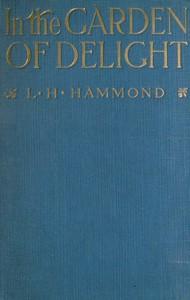

: De spoorzoeker: Schetsen en Tooneelen uit de Amerikaansche wildernis by Aimard Gustave Cnopius L C Lodewijk Christiaan Translator - Aztecs Fiction
